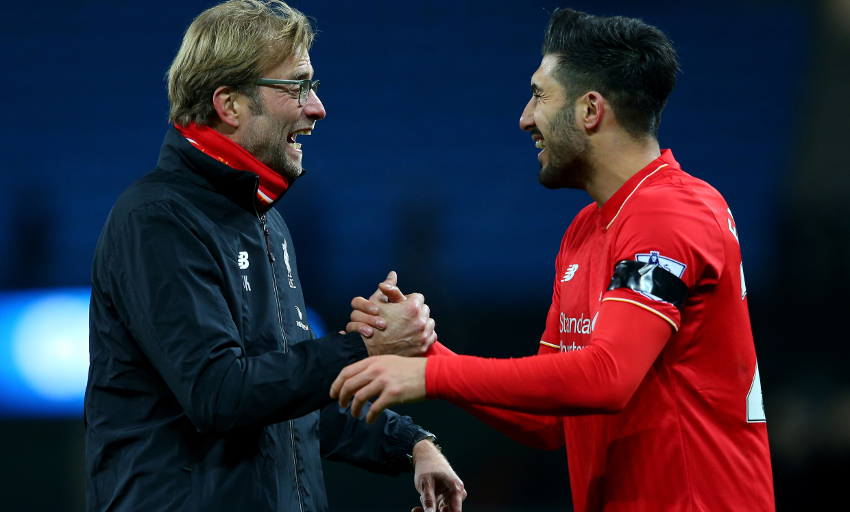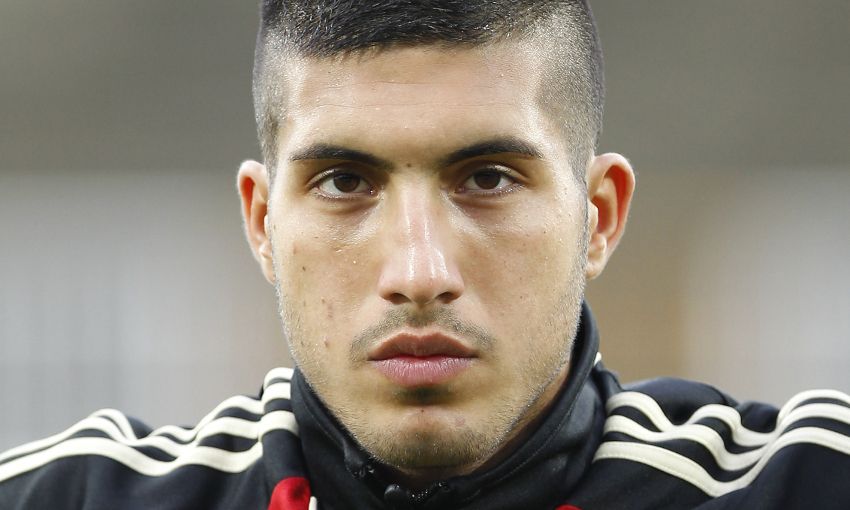The evolution of Emre Can: The development
"No chance he can play here - he's too good for us."
Can found football easy.
The above quote, his mother and father told him, came from the first manager to observe Emre in action with players of the same age. And even allowing for the possibility of parental bias in the retelling of the anecdote through the years, the talent was indeed obvious.
Not that it had fully dawned on the boy himself. “A lot of other people realised,” he remembers, modestly. “And then I played my first six years always with players one year older than me.”
Eintracht spotted that potential and three seasons with the Frankfurt outfit preceded a transfer to the country’s heavyweight club, Bayern, in 2009.
So far, so special, then.
Within a decade of walking through the doors at SV Blau-Gelb, Can was officially registered on the books of a team who would reach the Champions League final in three of the next four campaigns.
But, as is the way of life, an obstacle suddenly appeared.
“The most difficult time for me was when I came from the youth team to the second team at Bayern Munich,” states Emre. “That one year, I remember, was very difficult. It’s a big step to come from kids’ football to man’s football.
“When I was a kid I remember I took the ball and went past four or five people, but when I was older I couldn’t do that anymore. I had to realise that. That I have to pass more. That I have to play clever football. That I have to learn a lot of things.
“But I did it well after one year. It was a year where I learned a lot. It was a big step for me and I know that I struggled that year. But I think I dealt with it well.”
That experience, and specifically the lessons in mental strength it taught Can, proved useful further down the line, too.
A brilliant run of form – undeniably his best for the Reds – in the closing months of 2015-16 was borne out of the Germany international thriving in the high-energy, quick-pressing system of his compatriot and manager, Jürgen Klopp.

Increased self-confidence was blatantly visible every time Emre got on the ball and he was part of the drama on the chaotic April night that Liverpool came from 3-1 down to overcome Borussia Dortmund in an unforgettable Europa League quarter-final.
Ruptured ankle ligaments suffered on the evening ruled him out until the second leg of the semi-final with Villarreal, when Can shrugged off the injury to star as Klopp’s charges booked a place in the Basel showpiece they would sadly lose.
His stock had not been higher.
But a late return to pre-season training last summer, due to his participation at Euro 2016 with Germany, meant he began the campaign on the bench. An innocuous knock at Burton Albion in August compounded matters.
Four weeks out meant just four starts before November. And meant, on a personal level, he needed time to find his form.
Another new obstacle.
“This season, at the beginning I struggled – I know that – because I had a lot of niggles. I’ve never had that [before], where I played not good,” he admits.
“Since I’ve been a professional, I was always OK; I hadn’t had a period of three to four months where I didn’t play well. It was not an easy time, privately it wasn’t an easy time because you think too much about football and think too much. You have pressure and you are scared to make mistakes.
“Everybody has to get through that period and everybody gets stronger from that. I feel better now and the last few games were better. I have to think that I’m coming back to my best. I think you can see that on the pitch as well.”
Indeed, for Can the learning doesn’t stop.
“Everything in football is happening in your mind,” he suggests.
“In training sessions, in the game, everything. You have to get very strong mentally. That’s football. I think you play football first with your head and then with your feet.
“You learn new things in every training session. Here in England I have learned that I have to play quicker football, that I have to play more physically, that I have to run more, maybe, that I have to do more sprints.
“In England, the football is different to Germany. I have learned a lot. If you play as a box-to-box player you have to be fit and healthy.
“I know that I’m good enough when I’m 100 per cent fit. In professional football, in England and the Premier League, you have to be 100 per cent fit.”
Click ‘Next’ to continue the story…


